WATER QUALITY
Water quality is a primary area of focus for the Lake Zoar Authority. Beginning in 2020, Western Connecticut State University’s Cyanobacteria Monitoring Program includes Lake Zoar in a weekly water testing program. The annual program monitors Cyanobacteria in regional lakes during the summer months when blooms are most likely. When Microcystin toxin levels exceeded federal and state limits, public beaches are closed. The towns and DEEP also test water at public beaches.
The LZA’s role is information gathering. The LZA also participates in water studies to learn more about the changing conditions of the water. In addition to quality, the LZA has an extensive program to control the growth of invasive weeds and as funds allow the most infested areas are treated with an herbicide that is used in over 150 lakes in CT each year.
Submitted herein are test results and survey reports for public interest.
2024 Microcystin Toxin Test Results
Sites tested: Eichler’s Cove, Frenches Cove, Jackson Cove, Kettletown, Lakeside Marina, Pomperaug River, Pootatuck River, Sandbar, and Shepaug Dam.
Microcystin Toxin Report August 27, 2024
Sites tested: Eichler’s Cove, Frenches Cove, Jackson Cove, Kettletown, Lakeside Marina, Pomperaug River, Pootatuck River, Sandbar, and Shepaug Dam.
Microcystin Toxin Report August 14, 2024
Sites tested: Eichler’s Cove, Frenches Cove, Jackson Cove, Kettletown, Lakeside Marina, Pomperaug River, Pootatuck River, Sandbar, and Shepaug Dam.
Microcystin Toxin Report July 24, 2024
Sites tested: Eichler’s Cove, Frenches Cove, Jackson Cove, Kettletown, Lakeside Marina, Pomperaug River, Pootatuck River, Sandbar, and Shepaug Dam.
Nitrate / Phosphate Monitoring Report July 16, 2024
Sites tested: Eichler’s Cove, Frenches Cove, Jackson Cove, Kettletown, Lakeside Marina, Pomperaug River, Pootatuck River, Sandbar, and Shepaug Dam.
